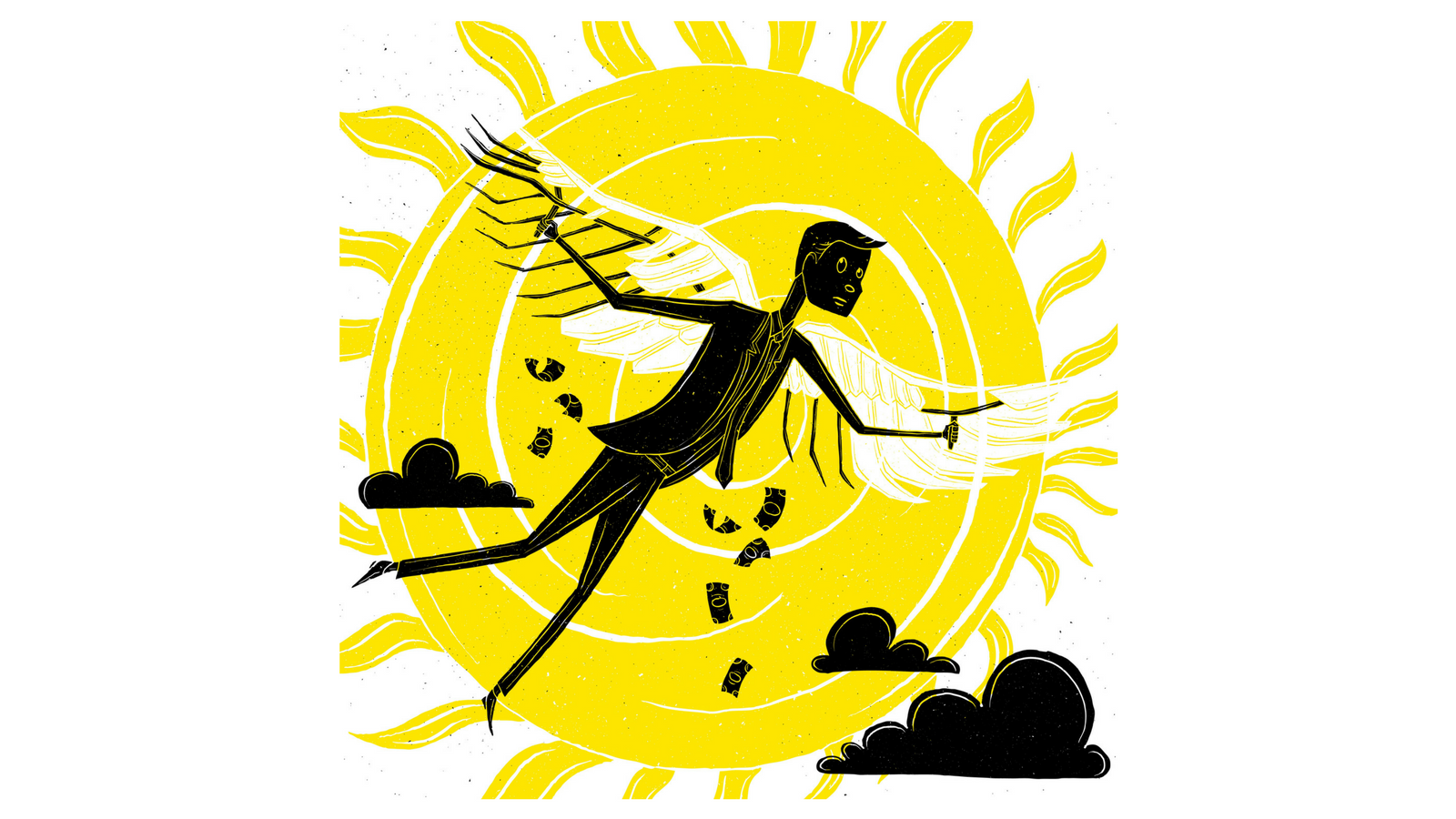High Anxiety: 3 Things to Know in the New Bubble Economy

Nervous yet? I can't imagine why not. After all, aren't we living in the age of the "everything bubble?" Real estate, stock prices, crypto-currencies, credit, you name it, valuations seemingly lurch from one peak to the next...and each peak ratchets the altimeter up to a level never before seen. Like poor Daedalus escaping the bonds of captivity while watching his reckless son Icarus soar higher and closer to the sun, investors yearn for the rewards of flight and are simultaneously scared witless whenever they glance down. A quick internet search using the terms like "bubble economy" or "market crash" yields something like 25 million hits in just over 7 nanoseconds. Judging from the number of "likes," titles like "7 Best Ways to Crash-Proof Your Portfolio" or "The Coming Bust in Stocks" are perennial fan favorites. Clearly the titles are meant to provoke a visceral response, and nothing sells better than dire predictions of looming catastrophe. Don't believe me? How many people in the states of Florida, Texas, Louisiana, or the Carolinas watch hour by hour weather updates from their local Storm Team every time a hurricane approaches the eastern edge of the Caribbean? In the majority of instances, the pavement will barely get wet from a storm that might make landfall hundreds of miles away. Yet I'd be willing to bet thousands of people will check weather reports every few minutes on their smart phones while driving to work. It's not that there isn't anything to worry about, it's that most people are worried about the wrong thing.
So what should you be worried about? Here's 3 very real things every investor ought to be framing a response to.
FOMO Makes You Stupid
Riding the thermal currents of a rising bull market is an intoxicating thrill, but how disciplined have you been about rebalancing investments back towards strategic targets? For many, the honest response is likely "Not so much." More importantly, with stocks appreciating more than 450% since March of 2009, how many investors have soberly reassessed accumulated wealth in their investment accounts and asked if the risk assumed remains aligned with the risk needed. In his book Essentialism, New York Times best selling author and speaker Greg McKeown refers to this as the "undisciplined pursuit of more." When it comes to monitoring an investment strategy, ignorance is not bliss, it's downright dangerous.
Like a bunch of teenagers pushing curfew boundaries into the wee hours of morning, the fear of missing out (FOMO) warps judgement and impairs sound decision making. What's worse, it may be mildly addictive. If it's been a while since you last took a hard look at how much "drift" your investment strategy has experienced, use this opportunity to reassess what it's going to take to get back on a trajectory that won't end in regret. As they say, no tree grows to the sky.
Capital Gains Taxes are for the Birds
Be honest, unless all your wealth is stashed away in an undeclared (and possibly illegal) Bitcoin account, you are going have to pay some taxes. It's not a question of if, it's a question of when. So why all the twisting and squirming about realizing some long-term capital gains? Conventional wisdom counsels investors to delay harvesting long term capital gains as long as asset allocation is aligned with investment policy. But a lot of things can change over the course of eight and a half years. Odds are in this so-called bubble economy, many individual stock positions as well as asset class weights have quietly decoupled from policy targets. It's a common occurrence whenever stock prices grow much faster than anyone would have anticipated. Problems arise because most investors unfailingly remember the first part of the conventional advice (defer taking gains as long as possible) and forget the second. The longer this policy drift goes on, the harder and more painful it becomes to align portfolio construction with strategy. That's when the wax in your wings begins to soften and a few spare feathers flutter out unnoticed.
These days, exacerbating the tendency to avoid rebalancing and harvesting gains (even when policy suggests it's long overdue) is the irrational belief that capital gains rates are going to plummet just as soon as congress gets its act together. That might be true and it might not. Either way waiting for a change in the internal revenue code is a closet form of market timing...and history shows market timing melts more wealth than it creates.
Safety in Numbers is Overrated
Investors shouldn't be particularly troubled that stock prices are reaching all-time highs. If that wasn't happening, it wouldn't be a bull market. It's the particulars of how prices are advancing that warrants examination. According to a research report published by Moody's, passive indexing already commands a 29% slice of all U.S. assets and will surpass the 50% threshold by 2021 or shortly after. That's just 2 years from now. The money flows towards passive investing confirm investors aren't throwing money at individual stocks, they are hitting the "easy" button and throwing it at every stock in the index indiscriminately.
The radical ascendance of indexing, where securities are bundled as if they are all exactly the same, dictates that meaningful differentiation in the individual securities that make up an index is gradually disappearing. Taken to extremes, when everyone is indexed and there is no one left flying the plane, investing $10,000 in Apple is no different than investing $10,000 in the S & P 500. If this sounds like an indictment of index funds, it most assuredly is not. As we wrote this year in an earlier piece (Playing by the Rules: 5 Things To Know About Index Investing), index funds don't reduce systemic market risk, they match it nearly perfectly. The more subtle trick is knowing what market you want to be indexing.
Normally, security prices are bid up or down as investors work out differing opinions about the prospects for future earnings of any given company in a process called "price discovery." In theory, the more people doing this the more efficiently market prices reflect all known information. Right now that process of price discovery is getting short-circuited by the tsunami of inflows pouring into low cost index mutual funds and ETFs. What's worth remembering is when markets become less efficient they inherently become more volatile. Like parents who fail to vaccinate their kids because they assume everyone else will, the steady erosion in the number of people engaged in price discovery isn't a problem...until it becomes one. Then it's going to suck.
So are investors really flying too close to the sun in some new bubble economy? The truth is I don't know and neither do you. What I do know is this: Daedalus managed to accomplish his objective of escape by marshaling the resources at his disposal, taking calculated risk, and systematically executing a well conceived plan. Icarus, with the same objective and the same resources at his disposal, crashed and burned. As far as I can tell, the only difference is one stuck to the plan and the other did not.
Michael Reid, CFA is a Managing Director and Chief Skeptic at Exchange Capital Management, a fee-only, fiduciary financial planning firm. He worries about a lot of things, most of which never happen. The opinions expressed in this article are his own.
This article was originally posted in 2017. It has been updated to reflect the current market.
Comments
Market Knowledge
Read the Blog
Gather insight from some of the industry's top thought leaders on Exchange Capital's team.
Exchange Capital Management, Inc.
110 Miller Ave. First Floor
Ann Arbor, MI 48104
(734) 761-6500
info@exchangecapital.com




